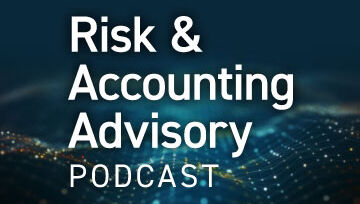In a time of rapid technological advancement and emerging risks, the role of the traditional internal auditor is also evolving. So, how can internal audit professionals stand the test of time?
While a strong technical foundation is certainly key, the opportunity for internal auditors to distinguish themselves lies in developing strong soft skills like communication and relationship management, critical and strategic thinking, and adaptability.
1. Communication and Relationship Management
In a client-centric field like internal audit, being able to communicate effectively is essential. Internal auditors must be able to clearly convey complex findings, risks and recommendations to stakeholders at all levels. Building trust and maintaining professional relationships with clients enhances cooperation and ensures that audit insights are understood, accepted and properly acted upon to generate positive results.
Seventy-eight percent of hiring managers noted business communication skills as being “absolutely essential” when addressing knowledge areas that influence hiring decisions.
According to a global survey of internal audit hiring managers conducted by the Institute of Internal Auditors (IIA), 78% of hiring managers noted business communication skills as being “absolutely essential” when addressing knowledge areas that influence hiring decisions.
Internal audit findings may include weaknesses in internal controls, compliance issues or potential risks — none of which are easy for the client to hear. Delivering bad news in a clear and objective manner allows internal auditors to maintain trust and credibility with the client. Internal auditors must build a reputation as impartial, trustworthy and unbiased professionals.
Active listening, another crucial part of successful communication, allows the client to feel their needs are being heard and understood. For the internal audit function to successfully add value and improve an organization’s operations, there must be a strong communication channel established.
2. Critical and Strategic Thinking
Internal auditors must be problem solvers. This goes beyond simply noticing that a problem exists; internal auditors must be able to identify the core reason a problem or deficiency is happening by discovering the root cause. They must be able to approach problems with a client-centric focus to provide a strategic solution that is tailored to a specific organization’s goals.
According to the IIA's Vision 2035 report, 55% of internal auditors are enthusiastic about being a trusted advisor, while the same percentage are excited to use problem-solving skills.
Strategic thinking also allows internal auditors to anticipate future deficiencies and emerging issues before they happen. By employing strong business acumen and an industry-aligned understanding, internal auditors can suggest improvements that align with each client’s specific needs and goals to elevate the service provided from being simply compliance-focused to being a value-added advisory function.
3. Adaptability
In a constantly evolving business and regulatory environment, internal auditors must be adaptable to stay ahead. Internal auditors should be able to respond quickly to new technologies, shifting priorities and emerging risks. Clients value advisors who are leading the charge on new trends rather than those who are trying to catch up.
The emergence of artificial intelligence (AI) and its increasing prevalence in the workplace have been a point of emphasis for companies seeking help with their internal audit functions. Staying up to date on internal audit trends and emerging technologies concerning business leaders can be what separates one internal audit professional from another.
While learning through day-to-day work experience is valuable, internal auditors should be supplementing their knowledge with additional learning materials to ensure their skill set is constantly growing and evolving. Internal auditors need to be constantly curious, with a desire to learn and grow in their knowledge and expertise.
Internal auditors must also be adaptable to changes happening within the organization. As organizational transformations such as digitalization, restructuring and mergers occur, adaptable auditors can quickly adjust their focus and audit plans to address these evolving circumstances. Continuous learning plays a crucial role in this adaptability, as it equips auditors with the latest tools and methodologies to effectively navigate and manage these changes.
According to the IIA Vision 2035 report, adaptability and learning agility are highlighted as essential skills, with 56% of current internal auditors and 48% of future internal auditors considering them vital.
Continuous Learning
Continuous learning is essential for internal auditors to maintain their relevance and effectiveness. This involves engaging in professional development opportunities such as attending workshops, webinars and conferences, as well as pursuing certifications and advanced degrees. By actively seeking out new knowledge and skills, internal auditors can stay ahead of industry and trends and regulatory changes, thereby providing more value to their clients.
Your Guide Forward
Cherry Bekaert's Risk Advisory practice and Internal Audit Services offer valuable knowledge, experience and support, along with the necessary internal audit skills to help you navigate complex internal audit challenges. Our professionals are dedicated to building strong relationships and maintaining open communication with stakeholders, providing audit insights that are clearly conveyed and well-received. Cherry Bekaert's professionals provide tailored solutions allowing you to proactively address emerging risks and seize opportunities for growth.
Contact us today to take the first steps toward internal audit success.







